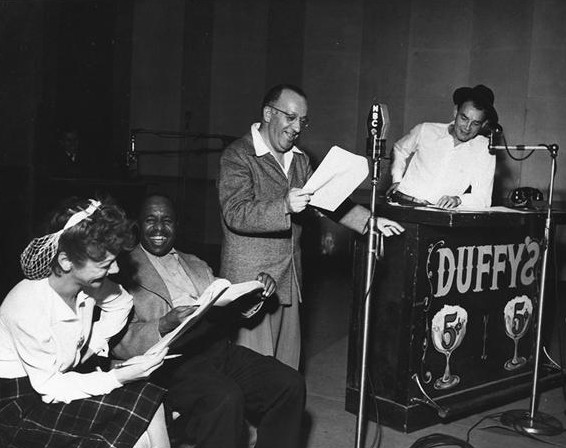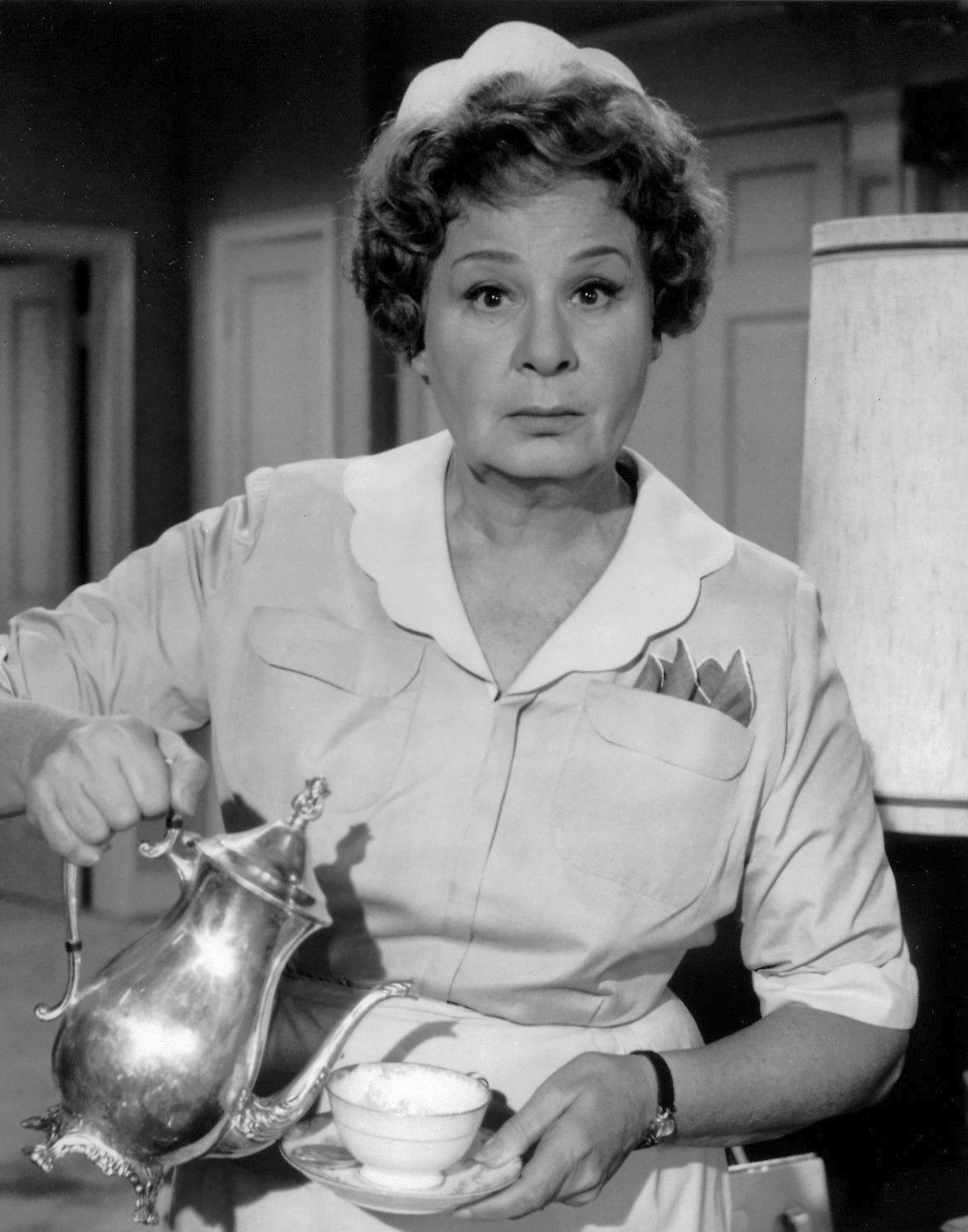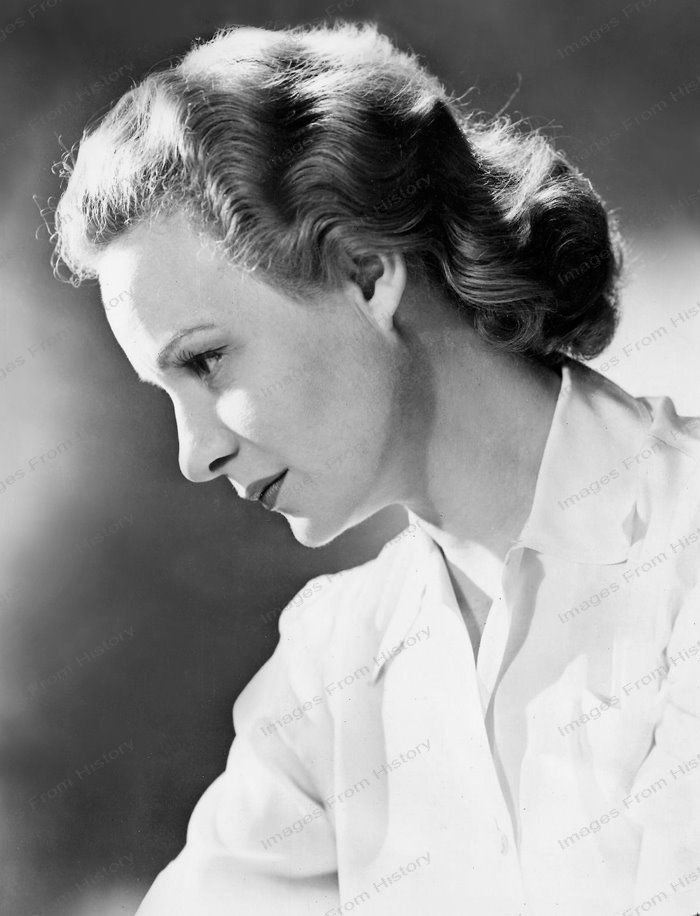Happy Birthday, Shirley Booth!
Posted by Ivan G. Shreve, Jr. on Aug 30th 2015
There’s an oft-repeated observation that purportedly came from Oscar-winning actress Hattie McDaniel on the controversial topic of her satisfaction with playing subservient domestic roles throughout her career. “Why should I complain about making $700 a week playing a maid?” Hattie was quoted as saying. “If I didn’t, I’d be making $7 a week being one.” It would seem that most of the good-paying housekeeper jobs existed in Hollywood, and no one knew that better than Shirley Booth—born in Brooklyn, New York on this date in 1898. From 1961 to 1966, the woman originally known as Thelma Marjorie Ford would achieve television immortality as the meddlesome maid Hazel and would be nominated three times for Outstanding Continued Performance by a Lead Actress in a Series (she won twice, in 1962 and 1963).
Booth’s educational pursuits took her to schools in Brooklyn and Hartford, Connecticut…but only until the age of 14, when she defied her father’s wishes and quit school to pursue a stage career. Shirley was not an overnight success; her first professional performance wouldn’t materialize until 1921 (a role in The Cat and the Canary). But four years later, she made her Broadway debut in Hell’s Bells, which also had the novelty of featuring a young Humphrey Bogart in the cast. Shirley’s love of acting was often concentrated on the stage; she appeared in nearly 40 Broadway productions and worked in 600 productions with various stock companies. Her better known Broadway contributions include The Philadelphia Story, My Sister Eileen, Tomorrow the World, A Tree Grows in Brooklyn, and Desk Set. (Shirley even auditioned to reprise the role she originated on stage for the movie version of Desk Set…but lost out to Katharine Hepburn.)
While Shirley Booth’s stage career was whooshing along at full speed, she was able to conquer radio with a little help from the man she married in 1929: Ed Gardner. On March 1, 1941, Gardner debuted as “Archie the Manager” on the popular situation comedy Duffy’s Tavern. And to play the role of the saloon owner’s man-crazy daughter, Ed solicited the participation of Mrs. Gardner. Ed and Shirley called it quits in September of 1942, but she continued to play Miss Duffy on the show until June of 1943. Depending on the source, the two of them just couldn’t work together anymore or they parted as the best of friends. (The latter is perhaps closer to the truth, considering that Gardner lamented afterward that the myriad actresses who followed in Booth’s wake just couldn’t measure up to her original portrayal.)

Shirley had actually performed on radio before the Duffy’s Tavern gig: she appeared on the now-famous December 17, 1936 broadcast of Rudy Vallee’s Royal Gelatin Hourthat introduced ventriloquist Edgar Bergen and his saucy sidekick Charlie McCarthy to the airwaves. (Shirley did a scene from Three Diamond Bid, a Broadway production in which she was appearing at the time.) But upon her departure from Duffy’s, she found herself in demand playing a character not unlike Miss Duffy: “Dottie Mahoney.” She guested on the shows of such comedians as Fred Allen and Danny Kaye and worked alongside the likes of Vaughn Monroe and Kate Smith. Other radio favorites on which Shirley made appearances include The Cavalcade of America, The Ford Theatre, It Pays to Be Ignorant, The Radio Reader’s Digest, The Raleigh Room, The Theater of Romance, and The Theatre Guild On The Air.
If Shirley Booth had been able to put over a little more comedy in her portrayal of Connie Brooks, chances are we’d remember Our Miss Brooks for Shirley and not Eve Arden (who ultimately won the role). Booth played Madison High’s favorite English teacher for the series’ April 8, 1948 audition, but CBS Radio programming chief Harry Ackerman felt that Shirley had problems finding the humorous side of Miss Brooks (empathizing with the difficult working conditions of teachers and their low pay instead). Shirley got a consolation prize in a short-lived NBC sitcom entitled Hogan’s Daughter, on which she played yet another Miss Duffy clone who actively sought out marriage prospects. (Harry Ackerman later became an executive with Screen Gems Television in 1958, and it’s not hard to discern that he remembered Shirley when it came to casting Hazel.)
Besides, after winning a Tony Award for her performance in 1949’s Goodbye, My Fancy—and a third statuette for The Time of the Cuckoo in 1952-53—Shirley Booth was in full command of her acting career. Her second Tony win for playing a housewife dealing with her alcoholic husband in William Inge’s debut play Come Back, Little Sheba would also open doors for her in Hollywood: she reprised her stage role in the movie version and nabbed the Best Actress Oscar for her memorable portrayal. Her Academy Award trophy brought about its share of controversy, however. Many feel that Booth’s skimpy film resume—she appeared in only four additional films, including About Mrs. Leslie (1954) and The Matchmaker (1958)—demonstrates that she cared more about the stage than becoming a movie star. (To these people I say: “Pish tosh.”)

Her sporadic movie roles did not preclude the success she would enjoy in Hazel when the decision was made to bring Ted Key’s popular Saturday Evening Post comic panel strip to television. Shirley showed great interest in the project after Thelma Ritter reportedly took a pass. Burt Lancaster, her co-star in Come Back, Little Sheba, tried to warn her off the series by stating the experience would “cheapen” her. “Time will tell if it cheapens me,” she told him in response, “and if it does, I hope to be as cheapened as Lucy.” (“Lucy” as in Lucille Ball, of course.) The Hazel series ran for four seasons on NBC before switching to CBS in its final season…and it might have gone on for much longer had Booth herself not made the decision to quit the show (the long working hours were murder on her bursitis). Since Shirley owned a nice little piece of Hazel, the “cheap” experience paid off well when the show hit syndication.
After Hazel, Shirley Booth limited her boob tube appearances to guest spots on sitcoms like The Ghost and Mrs. Muir and specials like a 1966 presentation of The Glass Menagerie, for which she received her fourth and final Emmy nomination. Her Emmy wins for Hazel—not to mention her three Tony statuettes and Oscar for Sheba—place her in a rare category known as “The Triple Crown of Acting.” In 1973, Shirley took one more stab at a sitcom by starring in A Touch of Grace, a series based on the popular Britcom For the Love of Ada. Though well-written and well-acted, the show faced stiff competition from another U.K.-to-U.S. transplant, All in the Family, and Grace was cancelled after thirteen weeks. Shirley Booth’s final television credit would be voice work in the now-classic holiday special The Year Without a Santa Claus. She passed away on October 16, 1992 at the age of 94.

